뉴스&스피킹(영자신문)
하루 10분이면 영어에 대한 두려움을 극복하고 누구나 유창하게 영어를 구사하실 수 있습니다.
-
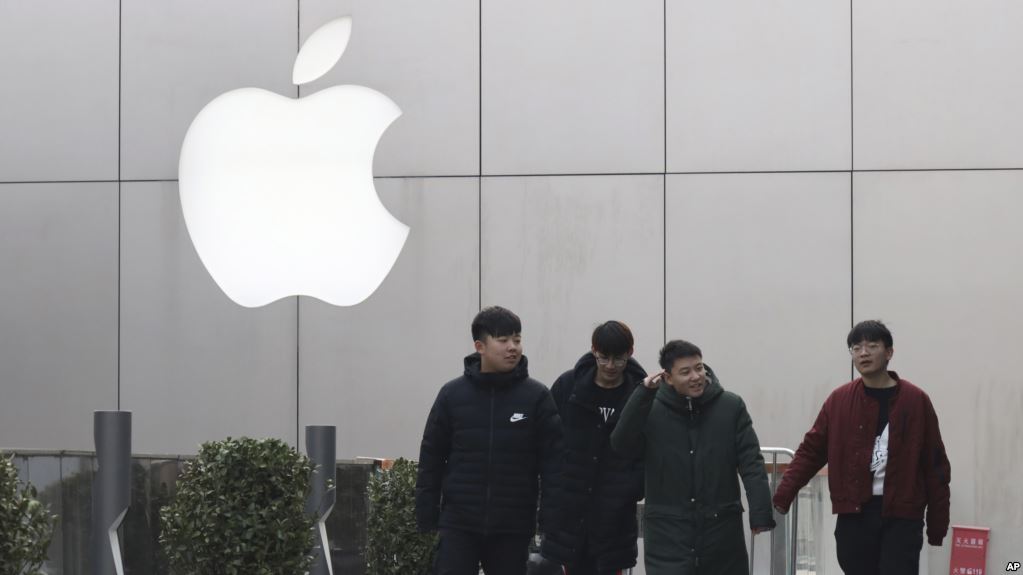 Dropping iPhone Demand in China Shows Growing Buyer Concerns Apple says dropping demand for iPhones in China will cause its overall revenue to fall well below previous predictions.
Dropping iPhone Demand in China Shows Growing Buyer Concerns Apple says dropping demand for iPhones in China will cause its overall revenue to fall well below previous predictions.
Apple chief Tim Cook addressed the issue in a letter to company shareholders on Wednesday. Cook warned that the company’s latest revenue guidance would be lowered to $84 billion. That was down from an earlier estimate of $89 to $93 billion.
The news caused Apple stock to trade sharply lower. It also led to big drops overall in the U.S. stock market, as well as other financial markets around the world.
The development was the latest sign of increasing economic concerns among Chinese buyers. The iPhone is Apple’s biggest product. It made up about 60 percent of the company’s revenue in the last quarter reported.
But Apple’s new $1,000 iPhones are a difficult sell to Chinese consumers worried about the economic future, as trade tension continues between China and the United States.
Apple’s lower prediction added to concerns that the iPhone maker will keep losing ground in the important Chinese market. Experts say many Chinese consumers are likely to reject Apple’s iPhone price increases and instead buy less costly models from competitors.
Additional major American brands – including Ford Motor Company and Tiffany – have also recently suffered sharp sales drops in China.
The country is still one of the world’s fastest growing economies. China reported a third-quarter economic growth of 6.5 percent – stronger than most other major economies. But that was the country’s lowest rate of growth since the 2008 world economic crisis.
Economic experts have blamed Chinese consumer concerns on the country’s tariffdispute with the United States as well as an increase in news about falling automobile and real estate sales in China.
David Dollar is a China specialist at the Washington-based Brookings Institution. He described the change in how Chinese buyers see the future as “definitely worrying.” He added that overall, “consumption growth” is slowing down across China. The Associated Press reported his comments.
Emily Li is a 37-year-old advertising designer in Beijing. She told the AP she is delaying buying another car or making other major financial decisions right now. “People are worried about losing jobs,” she said.
Weakness in Chinese demand is especially painful for Apple and other smartphone makers. China makes up one-third of the industry’s shipments worldwide.
Estimates from research company IDC showed smartphone shipments to China fell 10 percent from a year earlier in the quarter that ended in September.
Apple’s third-quarter shipments in China fell 13 percent from a year earlier to 7.5 million, IDC reported. That put Apple’s market share in fifth place in the Chinese market. Chinese smartphone manufacturer Huawei enjoys a 24.6 percent share.
n his letter to Apple shareholders, Cook gave no China sales numbers for the final quarter of the year. But he said sales decreased as consumer “uncertainty” grew over the U.S.-China trade dispute.
Worldwide, Apple fell behind Huawei to become the number three brand by number of handsets sold in the third quarter, IDC reported. South Korea’s Samsung Electronics was in first place.
I’m Bryan Lynn.View -
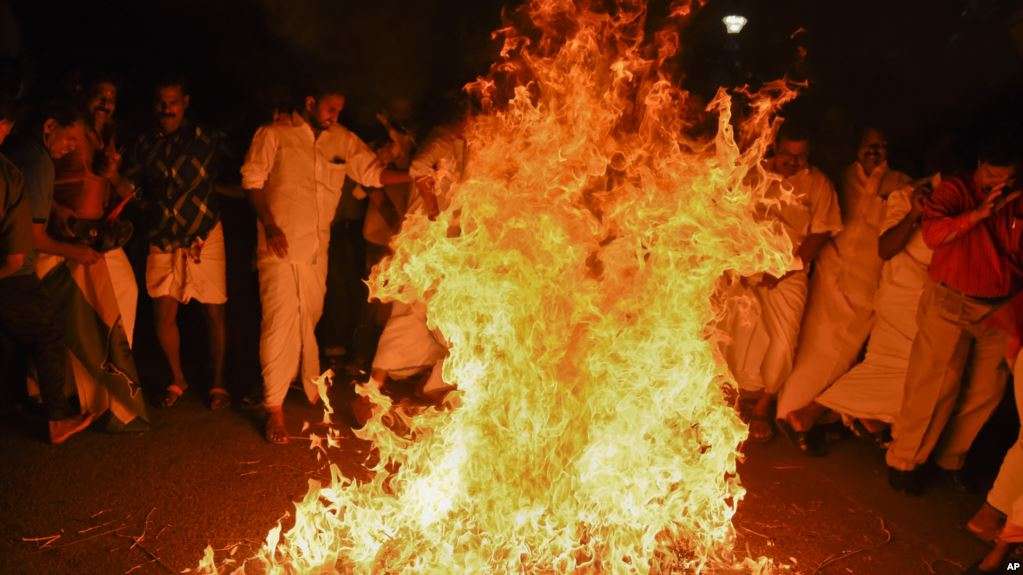 Protests in India after Women Enter Hindu Temple Two women have entered a Hindu temple for the first time since a ban was lifted on female visitors between the ages of 10 and 50.
Protests in India after Women Enter Hindu Temple Two women have entered a Hindu temple for the first time since a ban was lifted on female visitors between the ages of 10 and 50.
The women entered the Sabarimala temple in the southern state of Kerala on Wednesday. The move led to large protests across the state.
The longtime ban barred women or girls of menstruating age from entering the temple, which draws millions of visitors each year. Some Hindus consider menstruating women to be impure.
India’s Supreme Court ordered a lifting of the ban in September. But despite the ruling, opponents and conservatives continued to block women aged 10 to 50 from entering.
A local police spokesperson said officers walked with the two women Wednesday to provide protection during their visit. The Reuters news service reported that a police official said officers also guarded the homes of the women after they left the temple. Police were also prepared to go with other women who wanted to enter the temple, the official said.
Protests broke out in several places in Kerala state after the women entered the temple. The police spokesperson said demonstrators blocked several roads and threw rocks at officers. He added that police fired tear gas in an effort to stop violence. There were no immediate reports of injuries.
Police officials said they were preparing for more demonstrations on Thursday because several political and Hindu groups have called for a strike to protest the women’s entry.
On Tuesday, millions of women in Kerala joined hands to form a human link that stretched more than 600 kilometers. The act was a showing of support of genderequality. The Communist Party of India, the ruling party in Kerala state, said about 5.5 million women took part.
On Wednesday, hundreds of women in Mumbai, India’s financial capital, also formed a human chain to express support for the women in Kerala.
The Supreme Court has agreed to re-examine its decision to lift the ban, after numerous legal challenges were brought against it.
Opponents of the ruling have argued that decisions made by the temple’s religious leaders are protected by India’s constitution. They also note that women of all ages can worship at other Hindu temples.
The Kerala state government has sought to permit women to enter the Sabarimala temple. But the position has drawn criticism from other political parties. Indian Prime Minister Narendra Modi’s BJP party opposes the Supreme Court’s decision.
Modi told India’s ANI news service that he felt the temple issue was more about religious tradition than gender equality. He noted that there are also temples that bar men from entering.
I’m Anna Matteo.View -
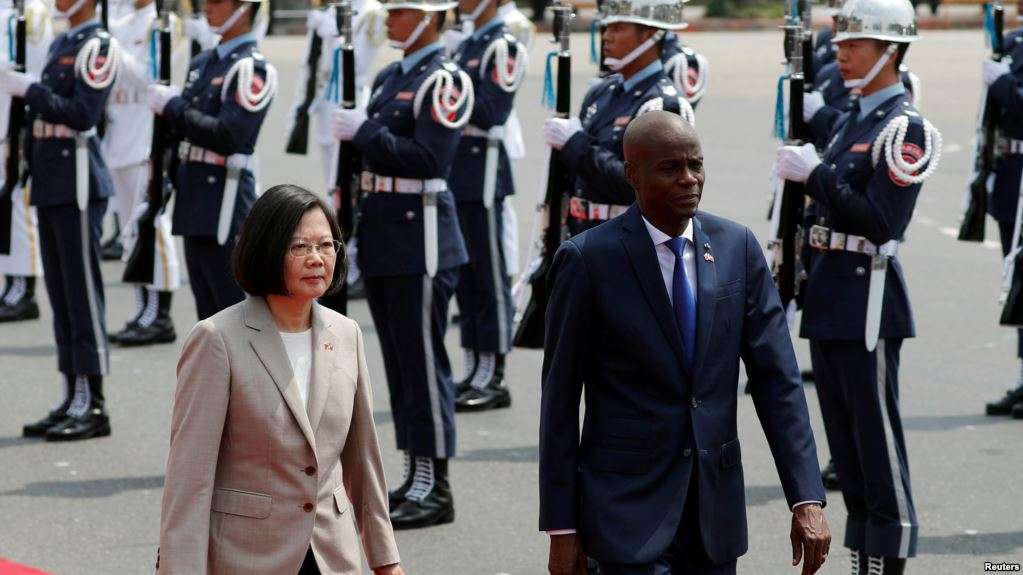 China Expected to Answer US Effort to Help Taiwan China is expected to use its economic power against any American actions aimed at helping Taiwan regain diplomatic allies around the world.
China Expected to Answer US Effort to Help Taiwan China is expected to use its economic power against any American actions aimed at helping Taiwan regain diplomatic allies around the world.
Mainland China considers the island of Taiwan a rebel territory. The two sides have had separate governments since the end of China’s civil war in 1949.
Officials in Taiwan note that China has pushed countries that still have diplomatic ties with the island to change sides.
On Friday, the United States said it had recalled diplomats from three countries that have cut ties with the government in Taiwan.
The State Department identified the three as the Dominican Republic, El Salvador and Panama. The department said the recall was to “discuss ways in which the United States can support strong, independent, democratic institutions and economies throughout Central America and the Caribbean.”
Proposed law to support Taiwan
Also last week, four members of the U.S. Senate proposed legislation that would downgrade relations with countries that cut ties with Taiwan.
Their bill is called the Taiwan Allies International Protection and Enhancement Initiative Act. The senators say the act is designed to strengthen Taiwan’s position in the world. It would give the State Department rights to downgrade relations with countries that cut ties with Taiwan. That could include reducing U.S. aid or military financing.
Some observers, however, note that China is likely to take measures to counter punishments for such countries.
Yun Sun is with the Stimson Center research group in Washington, D.C. She told VOA, “…I think the Chinese will make sure that these countries will be compensated for their punishment.”
She added that, “If it appears that the U.S. punishes these countries and China does nothing, then no other countries in the future would have the same level of incentive…” to cut ties with Taiwan.
Five countries have cut ties with Taiwan since President Tsai Ing-wen took office in 2016.
Tsai has angered Chinese officials by rejecting a condition that the mainland requires for talks to take place. The Chinese government wants Taiwan to accept that both sides belong to the same country.
Observers expect China to make few comments about countries with diplomatic ties to Taiwan. But they say China is likely to offer money as needed to gain support from Taiwan’s 17 remaining allies.
More than 170 nations recognize mainland China diplomatically and, in so doing, do not recognize Taiwan. China hopes to influence the remaining countries into deciding that it is worth the risk of hurting relations with the U.S.
Lin Chong-pin is a retired professor in Taiwan. He said he thinks China will continue or even strengthen efforts to establish economic and diplomatic ties with Taiwan’s allies.
China already offers diplomatic aid to many countries, especially in Asia and Africa. Its Belt-and-Road development program is to include 65-nations and could cost about $1 trillion. The Chinese government launched the program with the hope of connecting Asia to Europe and even Africa.
Last week, China promised $60 billion in financial support to African nations.
The most recent country to cut diplomatic ties with Taiwan and establish relations with China is Sao Tome and Principe. China promised $146 million to modernize the country’s airport and to build a deep-sea container port to help increase trade with China.
I’m Mario Ritter.View -
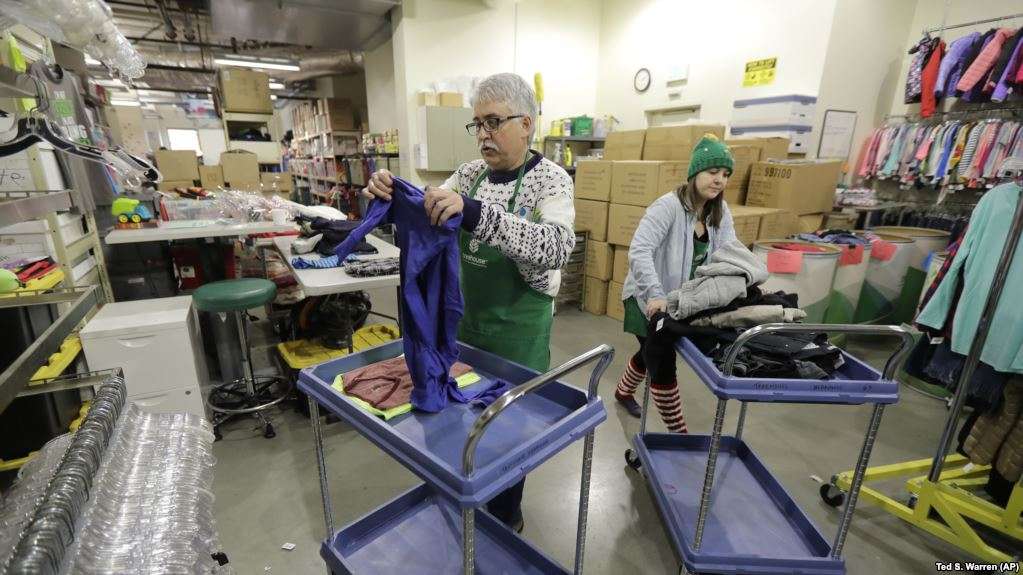 Man Leaves $11 Million Surprise Gift to Children’s Groups Alan Naiman was known for being very careful about how he spent his money. But even those closest to him had no knowledge of the fortune he quietly gathered and the last act he had planned.
Man Leaves $11 Million Surprise Gift to Children’s Groups Alan Naiman was known for being very careful about how he spent his money. But even those closest to him had no knowledge of the fortune he quietly gathered and the last act he had planned.
Naiman died of cancer at age 63 last January. The man from the American state of Washington gave most of his money to groups that help the poor, sick, disabled and abandoned children.
He gave them $11 million.
The large amount of his fortune shocked the groups that received his gifts and even his best friends.
That is because Naiman had been known to repair his own shoes with duct tape. He had sought deals to buy food from grocery stores at closing time and taken friends out to lunch at low cost restaurants.
Naiman died unmarried and childless. He loved children but also was intensely private, his friends say. He saved, invested and worked extra jobs to gather money. He rarely spent the money on himself after seeing how unfair life could be for children who suffer the most.
His friends believe a lifelong desire to help his older brother who had a developmental disability influenced Naiman. Yet he rarely spoke of it. His brother died in 2013.
His close friend Susan Madsen told the Associated Press, “Growing up as a kid with an older, disabled brother kind of colored the way he looked at things.”
A former banker, Naiman worked for the past 20 years at the state Department of Social and Health Services. He earned $67,234 a year and also took on side jobs. Sometimes, he worked as many as three at a time.
He saved and invested enough to make several millions of dollars. He also received millions more from his parents after they died, said Shashi Karan, a friend from his banking days.
Naiman was pleased when he was able to make use of the reduced prices many companies and organization offer older people. He bought his clothes from large self-service stores. He loved cars, but for most of his life, drove worn-out vehicles.
After Naiman’s death, Karan recognized how little he knew of his longtime friend. “I don’t know if he was lonely. I think he was a loner,” Karan said.
Many of the organizations that received Naiman’s gifts said they did not know him, although they had crossed paths.
He left $2.5 million to the Pediatric Interim Care Center in Washington. The center is a private organization that cares for babies born to mothers who abused drugs and children with drug dependency.
Naiman had called the center about a newborn baby while working for the state more than 10 years ago. Barbara Drennen, who established the center, said, “We would never dream that something like this would happen to us. I wish very much that I could have met him. I would have loved to have had him see the babies he’s protecting.”
The center used the money to pay off its mortgage and buy a new vehicle to transport the children.
Naiman gave $900,000 to the Treehouse, a foster care organization. He had brought children in his care to the group’s house, where children without parents can choose toys and necessities for free.
Treehouse is using Naiman’s money to expand its college and career support services statewide. Jessica Ross, who works with Treehouse, commented that Naiman’s savings and cost cutting were for this purpose.
She called it a “pure demonstration of philanthropy and love.”View -
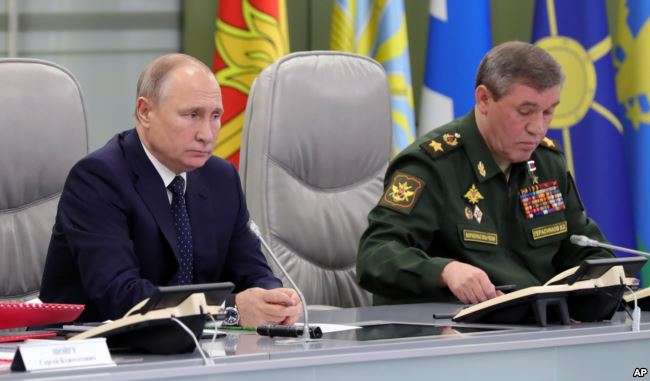 US Reacts to Russian Test of Hypersonic Weapons Russia says it tested a new hypersonic glide vehicle this week. President Vladimir Putin observed the test. He declared that the vehicle cannot be stopped and will guarantee his country’s security for many years.
US Reacts to Russian Test of Hypersonic Weapons Russia says it tested a new hypersonic glide vehicle this week. President Vladimir Putin observed the test. He declared that the vehicle cannot be stopped and will guarantee his country’s security for many years.
Putin spoke of the successful test of the weapon Wednesday during a visit to the defense ministry in Moscow.
The following day, the U.S. Department of Defense reacted to the Russian announcement.
“While the United States has been the world leader in hypersonic system research for many decades, we did not choose to weaponize it,” said a department official, Lieutenant Colonel Michelle Baldanza.
She added that the decision to make hypersonic weapons creates an imbalance that the department must deal with. She said the United States was considering “options” to answer the new weapons.
The hypersonic glide vehicle described by Putin is called the Avangard. It was tested on December 26 at the Dombarovskiy missile base in the southern Ural Mountains. Russian officials said the missile successfully hit a target in Kamchatka, about 6,000 kilometers away to the east.
The new weapon is called hypersonic because of its extremely high speed. It travels as fast as several times the speed of sound.
Putin called the test an “excellent New Year’s gift to the nation.”
His announcement comes at a time when relations between Russia and the United States are tense. Conflicts in Syria and Ukraine, as well as reports of Russian interference in the 2016 U.S. elections have tested relations. Some observers say ties between the two sides are at their worst since the period known as the Cold War.
A rocket lifts the Avangard to a great height. The missile then glides back to Earth at speeds many times faster than sound.
U.S. Defense officials were not surprised by the announcement of the test. In a speech to Russians on March 1, Putin described a group of new weapons that, he said, could make others “useless.”
Among the weapons he spoke about were new nuclear weapons, including cruise missiles and underwater drones.
In his latest announcement, Putin said the Avangard is designed from composite materials. He also said it is able to resist temperatures of up to 2,000 degrees Celsius.
Putin said the Avangard would be ready by as early as 2019. It is not clear if it is able to carry a nuclear weapon.
Another hypersonic missile test reported
There were reports of another Russian hypersonic weapon test this month.
American broadcaster CNBC reported that Russia successfully tested a new anti-ship missile. The missile is said to travel eight times the speed of sound, or more than 9,800 kilometers an hour.
The missile is called Zircon, but little information about it is known. The magazine Popular Mechanics reported that the weapon can travel a distance of 300 kilometers and be launched from ships, which may include submarines.
Zircon may be similar to a hypersonic missile developed with India.
The U.S., Russia and China are all believed to have hypersonic weapons under development.
I’m Mario Ritter, Jr.View

